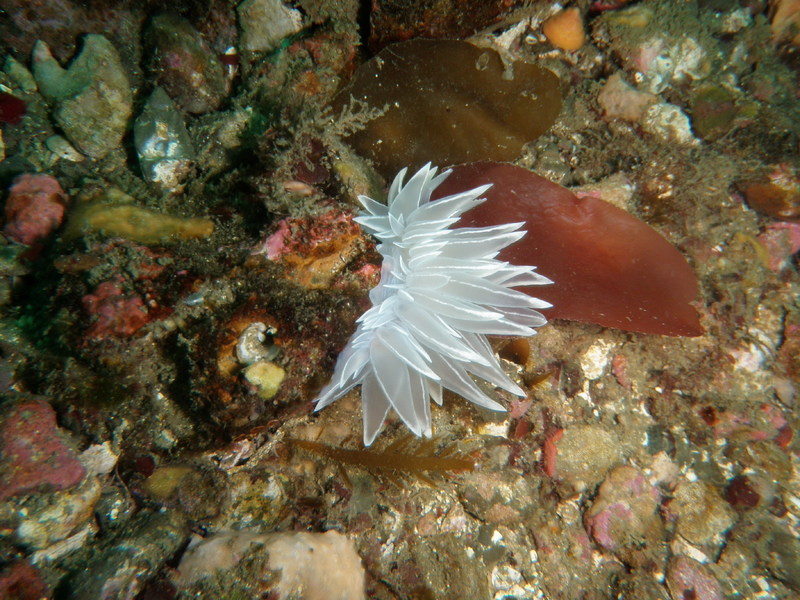Creatures Adapting

Before the dams were removed, the dense kelp beds that grew in the Elwha River nearshore habitat were home to a wide range of sea creatures. As sediment moved downstream after the dam removal, however, this sediment blocked light and caused a lot of algae to disappear.
As time went on, the ecosystem responded to these changing conditions. As algae decreased, animals that could utilize the sand or bare rock and gravel habitats became more abundant. For example, Dungeness crabs, who frequently bury themselves in sand to escape the notice of predators, increased. Feather duster tubeworms also became abundant in sites with the soft, sandy substrates. These species filter nutrients out of the water and use undigested particles, such as those that the sediment provide, to build their tubes. In the new, sandy environment some fish species rarely seen, such as sand lance and starry flounder, became common. Sand lance are another species who buries itself in the sand for protection, and starry flounder are one of their common predators.
Long-term fish residents also adapted to the new surroundings. Buffalo sculpin have been a common fish found at the Elwha river delta. They dwell on the bottom of the sea floor and camouflage themselves according to their surroundings. Prior to dam removal, they were brown with reddish patches to blend in with red algae and rocks. When the algae was gone, scientists noticed that these sculpin were light to dark grey and even had patches of white, enabling them to hide in the bare gravel and rock substrates, which also frequently contained broken white clam shells.
Recently collected data suggests that in more the kelp and other algae have rebounded and are on their way back to their pre-dam removal levels. Has the Elwha River Delta reached a new equilibrium? As researchers continue to monitor these sites, time will tell. Read the next section, “What We Do Underwater,” to learn more about how this data is collected.



